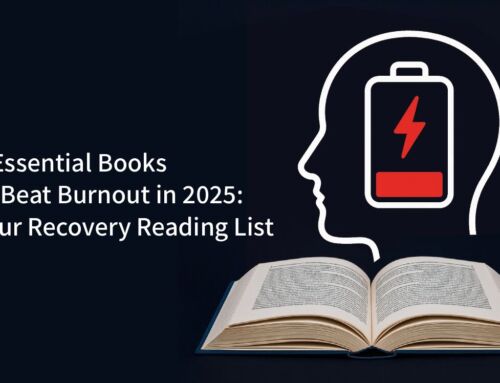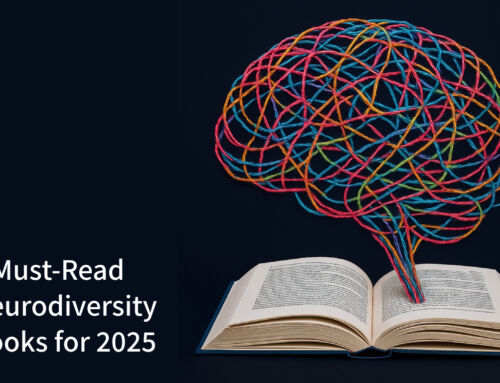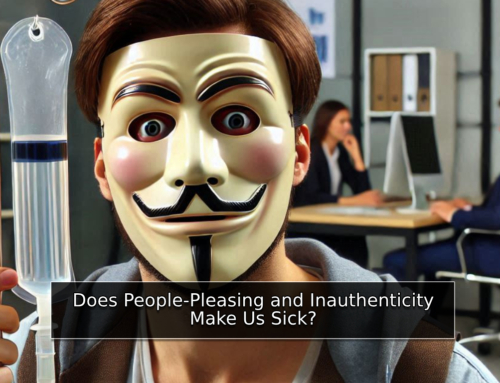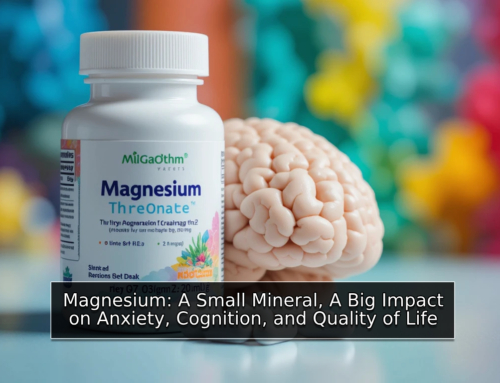Grief or Depression – and why the difference is important
Understanding the Difference
Grief is an inevitable part of life. We all experience loss, and our reactions can vary widely. Sometimes, it can be difficult to distinguish between normal grief and depression. Feelings of sadness, loneliness, loss of appetite, and difficulty sleeping are just some of the symptoms shared by both conditions. So how can we tell what we're experiencing? And what can we do to support ourselves during this difficult time?
Grief and Loss
Grief is a natural, personal, and emotional response to loss. It's a journey of saying goodbye and adapting to a new life, a journey filled with a wide range of emotions and thoughts, such as sadness, anger, guilt, loss of appetite, sleep disturbances, longing, and loneliness. Everyone experiences grief uniquely, and there's no "right" way to grieve. It's a dynamic process that changes and evolves over time, allowing us to reconnect with our lives in new ways.
Types of Grief
It's important to note that grief comes in many forms. There's no "right" way to grieve, and the process is entirely personal. Some common types of grief include:
- Complex grief: When grief is prolonged or expressed very intensely, to the point of interfering with daily functioning.
- Delayed grief: When a person suppresses their grief and continues with life as usual, until it eventually erupts.
- Complicated grief: When grief is accompanied by feelings of guilt, anger, or self-blame related to the loss.
Why is it Important to Address Prolonged Grief?
When grief lasts too long or is expressed in an extreme way, it can develop into chronic grief. This can lead to significant impairment in quality of life, interpersonal relationships, and mental and physical health. Reasons why it's important to address prolonged grief include:
- Preventing the development of other mental health disorders: It can lead to the development of depression, anxiety, or other mental health disorders.
- Improving quality of life: It can help reduce the intensity of symptoms, improve mood, and restore daily functioning.
- Preventing physical complications: It can affect physical health and lead to problems such as sleep disturbances, headaches, and digestive issues.
- Supporting loved ones: It can also help family and friends cope with the loss and provide them with support.
Depression
Depression is a mental health disorder characterized by persistent sadness, loss of interest in activities that were once enjoyable, and often accompanied by significant weight changes, difficulty concentrating, feelings of hopelessness, negative thoughts about oneself and the future, and a loss of interest in life.
Why is it important to understand the difference?
Because this understanding allows us to receive the appropriate support. Antidepressant medications, for example, can be very helpful for people with depression but are not always suitable for people who are grieving.
So how can we tell what we're experiencing?
The answer is not simple, and an accurate distinction often requires professional advice. However, there are some key differences to look out for:
- Connection to the event: In grief, feelings are directly related to a specific loss. In depression, feelings can be general and not related to a particular event.
- Intensity of symptoms: In depression, symptoms are usually more severe and significantly interfere with daily functioning.
- Duration: Grief is a dynamic process, and symptoms typically change over time. Depression, on the other hand, is a chronic condition that can last a long time without treatment.
What can we do?
- Talk about it: Sharing your feelings with others can be very helpful.
- Seek support: Family, friends, support groups, or a therapist can provide the support you need.
- Take care of yourself: Getting enough sleep, eating a healthy diet, and engaging in physical activity can improve your mood.
- Practice acceptance: Accepting the loss is an important part of the healing process.
- Find meaning: Finding new meaning in life can help you cope with loss.
Remember: You're not alone. Help is available.
Note: This information is not a substitute for professional advice. If you are experiencing emotional difficulties, please seek the advice of a qualified mental health professional.
Additional Resources:
- Support groups: Joining a support group for people who have experienced similar losses can provide emotional support and connection with others going through a similar process.
- Books: Reading books about grief can provide tools for coping with loss and a better understanding of the process.
- Apps: There are many apps that provide tools for coping with grief, such as meditations, exercises for managing emotions, and more.
- Cognitive-behavioral therapy (CBT) and Acceptance and Commitment Therapy (ACT): These therapies provide tools for coping and moving forward in life.
Contact now
Ready to take the first step towards positive change? Contact me now for more information and to schedule an appointment. Whether you prefer in-person sessions in Tel Aviv or virtual meetings via Zoom, my integrated approach of Cognitive Behavioral Therapy (CBT) and Acceptance and Commitment Therapy (ACT) can help you break free from struggles and find greater fulfillment in life. I'll be sure to get back to you as soon as possible. Let's embark on this transformative journey together!
Call Whatsapp 052-2325511
Or fill out the following form.
Can ACT and CBT assist you or your loved ones?
Welcome to my therapy practice, where I offer a powerful combination of Cognitive Behavioral Therapy (CBT) and Acceptance and Commitment Therapy (ACT) techniques. CBT is a goal-oriented, short-term approach that's highly effective for anxiety, depression, low self-confidence, and more. ACT complements CBT, helping you navigate life's challenges and find fulfillment and authentic, happier life.
If you're struggling with anxiety, depression, low self-image, or facing setbacks, CBT combined with ACT may be the key to transforming your life. Break free from the struggle and take a step towards a happier, more fulfilling life.
Contact me today to schedule an appointment and embark on your journey of positive change. You don't have to face it alone; I'm here to support you every step of the way. Let's work together to create the life you deserve!





